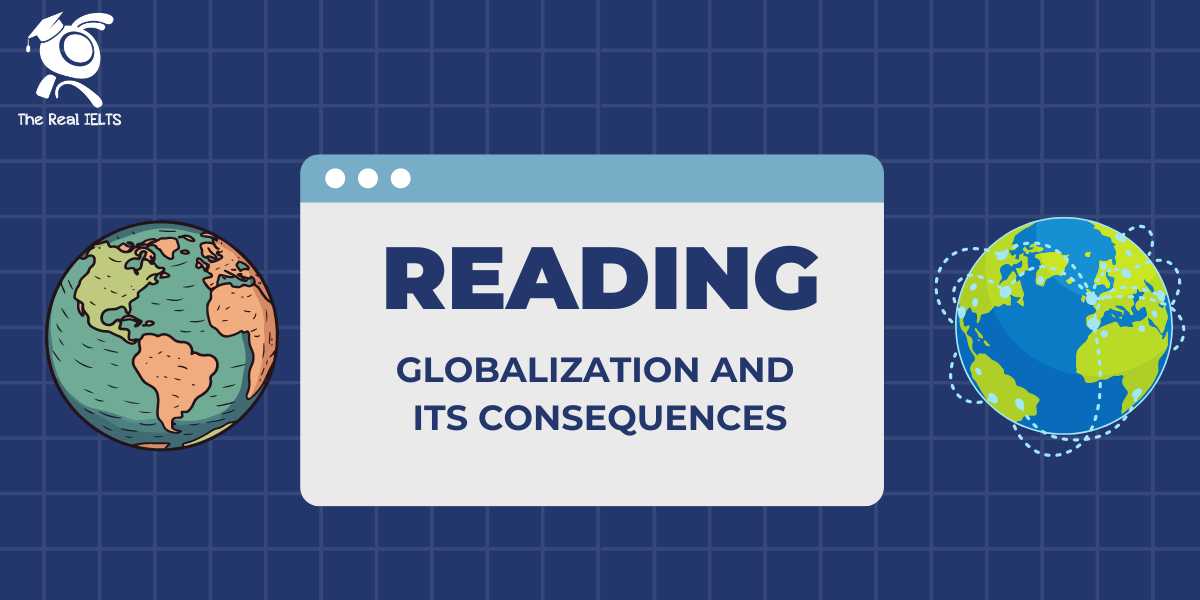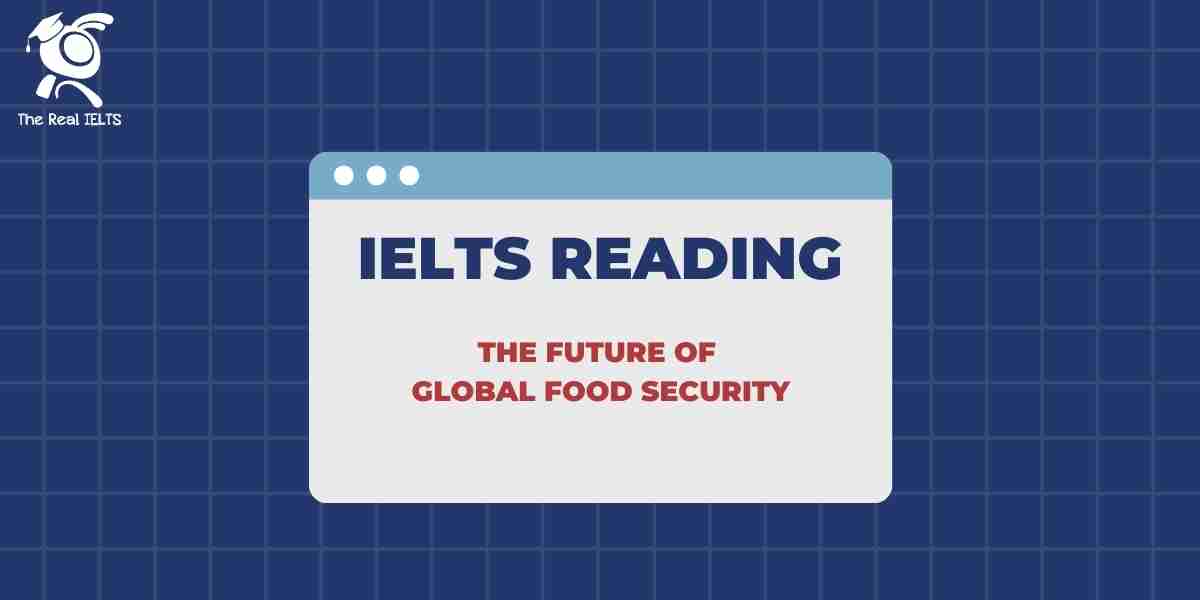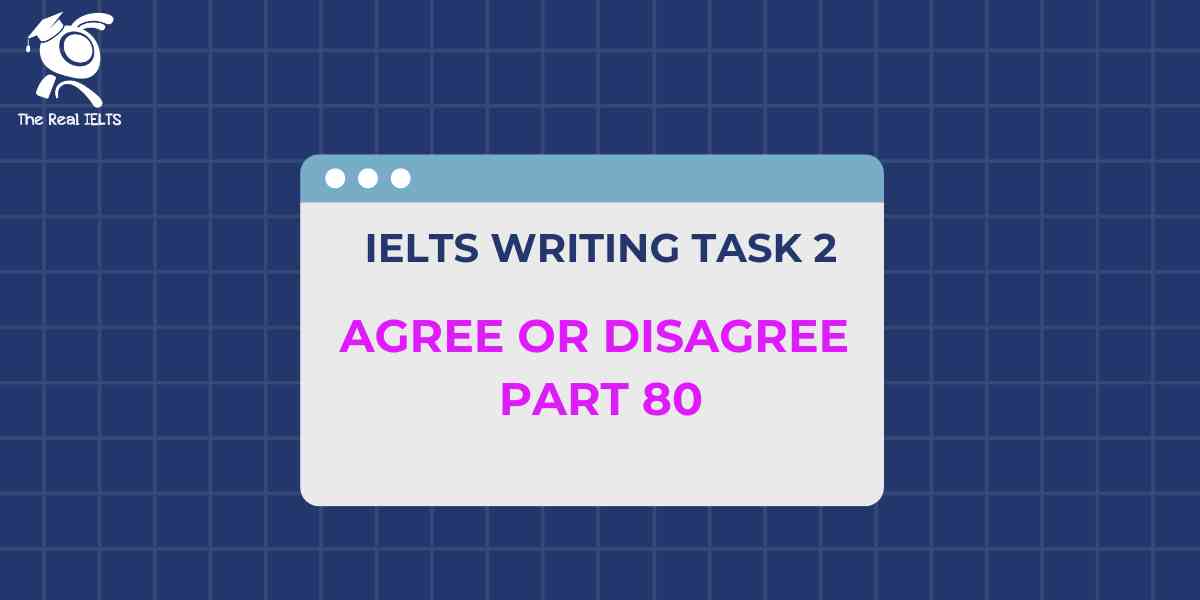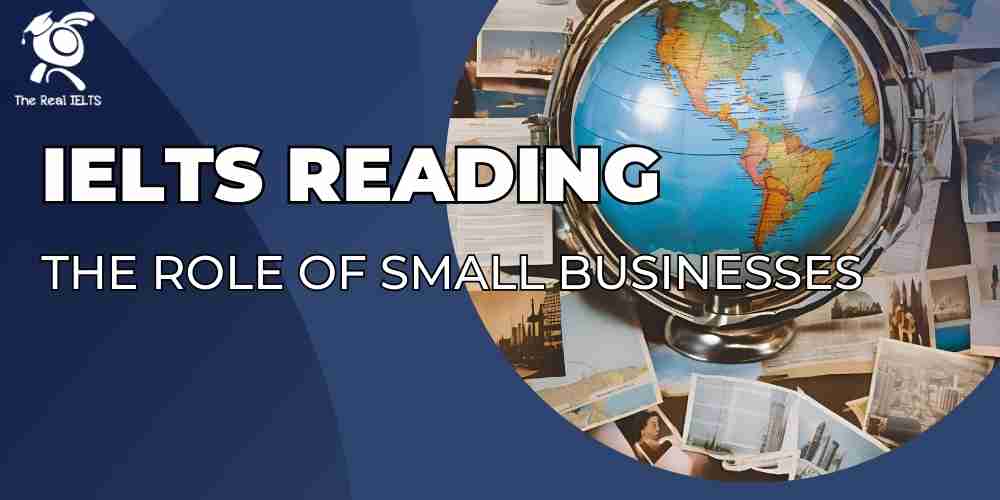Bài Reading này có chủ đề: “Toàn cầu hóa và những hệ quả của nó”. Các bài Reading thường sẽ không có phần ghi âm hay luyện nghe luyện nói gì, nhưng đòi hỏi sự tập trung trong quá trình đọc bài viết. Các bạn hãy đọc kỹ bài đọc và trả lời câu hỏi sao cho đúng.
IELTS Reading Practice: “Globalization and Its Consequences”
Passage: Globalization and Its Consequences
Globalization is a multifaceted phenomenon that refers to the increasing interconnectedness and interdependence of the world’s markets and businesses. This process has been driven by advances in transportation and communication technology, along with trade liberalization policies. While globalization has numerous benefits, it also brings about significant challenges and consequences.
Economic Impact
Globalization has significantly boosted economic growth in many countries, particularly in developing nations. By opening up to foreign trade and investment, these countries have been able to improve their economic infrastructure, increase their production capacities, and enhance their technological know-how. Multinational corporations (MNCs) have played a crucial role in this process by investing in local markets and creating job opportunities.
However, the economic benefits of globalization are not evenly distributed. While some countries and individuals have reaped substantial rewards, others have been left behind. This has led to increased economic inequality both within and between countries. Additionally, globalization has contributed to the decline of traditional industries in some regions, resulting in job losses and economic dislocation.
Cultural Impact
Globalization has also had a profound impact on cultures around the world. The widespread dissemination of information and cultural products through media and the internet has led to a more homogenized global culture. Popular culture, particularly from Western countries, has become dominant, influencing lifestyles, fashion, and entertainment in many parts of the world.
While this cultural exchange can promote understanding and tolerance, it can also lead to the erosion of local cultures and traditions. Some argue that globalization has led to cultural imperialism, where the values and practices of more dominant cultures overshadow those of less powerful ones.
Environmental Impact
The environmental consequences of globalization are complex and multifaceted. On one hand, globalization has facilitated the spread of environmentally friendly technologies and practices. International cooperation and agreements have also become easier to achieve, leading to concerted efforts to address global environmental issues such as climate change.
On the other hand, globalization has also contributed to environmental degradation. The increased demand for resources and the rise in production and transportation activities have led to higher levels of pollution and the depletion of natural resources. Furthermore, the global nature of many environmental problems means that actions in one part of the world can have far-reaching consequences elsewhere.
Social Impact
The social implications of globalization are equally significant. Globalization has enabled greater social mobility and the spread of ideas and values. It has contributed to the empowerment of individuals and communities, particularly through the spread of information and communication technologies.
However, globalization has also exacerbated social inequalities and tensions. The rapid pace of change and the dislocation of traditional ways of life can lead to social unrest and conflict. Additionally, the benefits of globalization are often unevenly distributed, leading to feelings of disenfranchisement and marginalization among certain groups.
Questions
Questions 1-5: True, False, Not Given
- Globalization has only positive effects on the economic growth of developing nations.
- Multinational corporations have contributed to job creation in local markets.
- The cultural impact of globalization is limited to the spread of Western culture.
- Environmental degradation is solely caused by globalization.
- Social mobility has been enhanced by globalization.
Questions 6-10: Multiple Choice
- What is one of the main drivers of globalization? a. Political agreements b. Advances in transportation and communication technology c. Decline of traditional industries d. Social mobility
- Which of the following is NOT mentioned as a consequence of globalization? a. Economic inequality b. Cultural imperialism c. Reduction in pollution d. Social unrest
- How has globalization affected environmental policies? a. It has made international cooperation more difficult. b. It has hindered the spread of environmentally friendly technologies. c. It has facilitated international agreements on environmental issues. d. It has led to the reduction of natural resources.
- What social issue has globalization exacerbated? a. The empowerment of communities b. The spread of communication technologies c. Economic growth d. Social inequalities
- What is a potential negative effect of cultural exchange due to globalization? a. Increased cultural understanding b. Erosion of local cultures c. Improvement in economic infrastructure d. Creation of job opportunities
Questions 11-14: Matching Information
Match each statement with the correct paragraph (A, B, C, or D).
- Discusses the uneven distribution of benefits of globalization.
- Mentions the role of technology in spreading cultural products.
- Explains the environmental degradation caused by increased demand for resources.
- Highlights the role of MNCs in local job creation.
Answers
Answers 1-5: True, False, Not Given
- False
- True
- False
- False
- True
Answers 6-10: Multiple Choice
- b. Advances in transportation and communication technology
- c. Reduction in pollution
- c. It has facilitated international agreements on environmental issues.
- d. Social inequalities
- b. Erosion of local cultures
Answers 11-14: Matching Information
- A
- B
- C
- A
Đọc lại bài cũ: Reading Skill Part 15: Cybersecurity Threats and Prevention.














